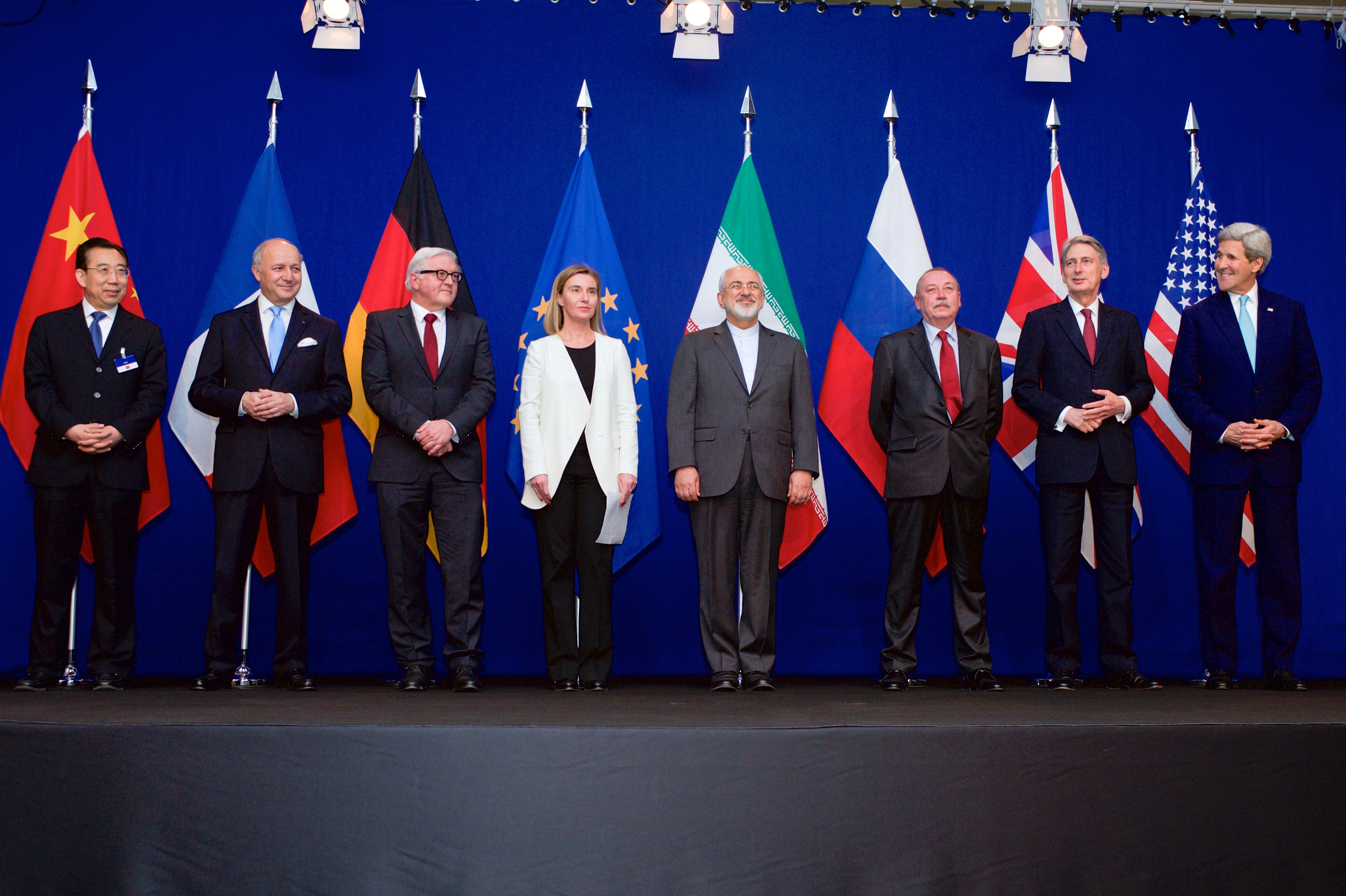After the Iran deal, a new Great Game
In
Login if you are already registered
(no votes) |
(0 votes) |
The so-called Iran ‘nuclear deal’ has been greeted with relief and satisfaction, but who will benefit more from it? How will power relations in the Middle East (and Eurasia as a whole, given Iran’s central location) change?
Iran is a crucial player and a potential energy superpower. According to the US Energy Information Administration, Iran is second in the world for proved gas reserves (see http://www.eia.gov/cfapps/ipdbproject/IEDIndex3.cfm?tid=3&pid=3&aid=6), with a total amount of 1,215 trillion cubic feet. As to oil, Iran would be in the third position (see http://www.eia.gov/cfapps/ipdbproject/IEDIndex3.cfm?tid=5&pid=57&aid=6) with 158 billion barrels. Current levels of energy production and exports are however limited, which means that, after the lifting of sanctions and possible foreign investment, Iran’s economy could receive a tremendous boost.
Iran’s geopolitics matters as well. Defended by mighty mountain ranges, as 2,000 years ago the Romans learnt in their fight against the Parthians, Iran borders Turkey, the Arab world, Central Asia (where Russian and Chinese influence is strong), and South Asia. To the South-West, it borders with the Persian Gulf and its huge energy resources. Such central position is pivotal to influence Eurasia.

Image credit: publicbroadcasting.net
Despite more than thirty years of sanctions, Iran’s economy has proved solid and resilient. As of 2015, Iran can boast a large number of industrial parks, a good record in science and technology research (in 2012 it ranked tenth worldwide in nanoscience: see http://www.oica.net/category/production-statistics/), and a motor vehicles production superior to that of a G7 country like Italy (almost 1.1 million as opposed to less than 700,000; see http://www.oica.net/category/production-statistics/). Overall, Iran’s economy ranks 18th in the world in PPP terms and its population is estimated at approx. 80 millions, which represents the largest potential market in the Middle East.
Iran’s economic possibilities have not gone unnoticed by Western countries. The EU is eager to tap into Tehran’s energy potential and several European delegations have already visited the country. Germany’s Vice-chancellor, Sigmar Gabriel, was in Tehran on 19 July with a business delegation; France’s Foreign Minister, Laurent Fabius, followed suit on 29 July and even invited President Rouhani to Paris. The same proposal then came from Italy’s Paolo Gentiloni, who reached Iran just few days later. This kind of Iran-visiting frenzy leaves Rouhani’s government in the comfortable position to decide and choose. In addition, Asian powers are also a part of the game and Hassan Rouhani already met some of their leaders (among them, India’s Prime Minister Modi) in early July at Ufa’s SCO/BRICS summits. A new Great Game seems to be taking place; who will benefit first and most? Russia’s role is important because of Moscow’s old ties with Tehran, and Putin’s contribution to inking the deal has been openly recognised by Obama himself. Will the Iran deal be an opportunity for a rapprochement between the West and Russia? This would be crucial especially for the EU. Hopefully for Bruxelles the deal will kick-start other ‘win-win’ games. After all, the West and Moscow share a keen interest in the end of ISIL and the Syrian conflict, which has ravaged that country since 2011. Talks on Ukraine could re-start soon; it has been announced that in Autumn Ukraine’s President Poroshenko will likely visit Kazakhstan’s Nazarbayev, a Kremlin’s close partner.
Defeating ISIL and bringing peace to Syria are priorities for all. Will the idea of an Iran-Iraq-Syria gas pipeline resurface? Competition with a proposed Qatar-Saudi Arabia-Turkey pipeline has fuelled tensions for years and settling them is of paramount importance for the EU, which is highly dependent on non-European gas. Of course the geopolitical stakes are high because Russia will hardly abandon its support to Syria’s Assad unless it will gain elsewhere. Tehran might for example sign a Free Trade Agreement with Moscow-led Eurasian Economic Union and facilitate exchange of fuels and armaments in the whole Eurasian region; it might even join the SCO, which includes China, and is becoming stronger and larger, with India’s and Pakistan’s forthcoming accession. There is not much clarity on China’s investments in Iran, but we know Beijing already is Tehran’s main trade partner, and has silently penetrated its oil sector, in particular through corporations such as Sinopec and CNPC.
The US President, for his part, can consider the deal a remarkable achievement, which offers America a partner in the fight against ISIL. Israel has voiced concern and protest, and Mr Netanyahu is actively lobbying US Congress, but will probably have to accept it. Times are changing for Israel, too: the Roman Catholic Church has recently recognised Palestine’s statehood and signed a treaty with it on 26 June 2015; EU Parliament passed a non-binding resolution in December 2014 calling for recognition of Palestine’s statehood. Saudi Arabia has to accept the deal as well. Ryadh has recently approached Russia, and in June Crown Prince Mohammad visited Putin; the two leaders signed Memorandums of Understanding worth millions of dollars in sectors such as energy and defence, and there have been rumours of a visit by King Salman to Moscow, despite the fact that the two states in the last decade have been at odds on a number of issues. Paradoxically, Saudi Arabia has found in enmity towards Iran a reason for closeness to Israel, as the Eshki-Gold contacts illustrate (see http://www.theatlantic.com/international/archive/2015/06/israeli-saudi-relations/395015/).
Iran has a long way to go in terms of reforms. Yet the same is true for Saudi Arabia, an absolute monarchy which is rated by Freedom House as one of the least democratic countries in the world. The whole Middle East/West Asia region can enhance its global attractiveness – other than as a provider of energy – only if political change will take place and entrenched enmities will be gradually set aside. Hopefully the Iran deal will help in this sense.
(no votes) |
(0 votes) |




